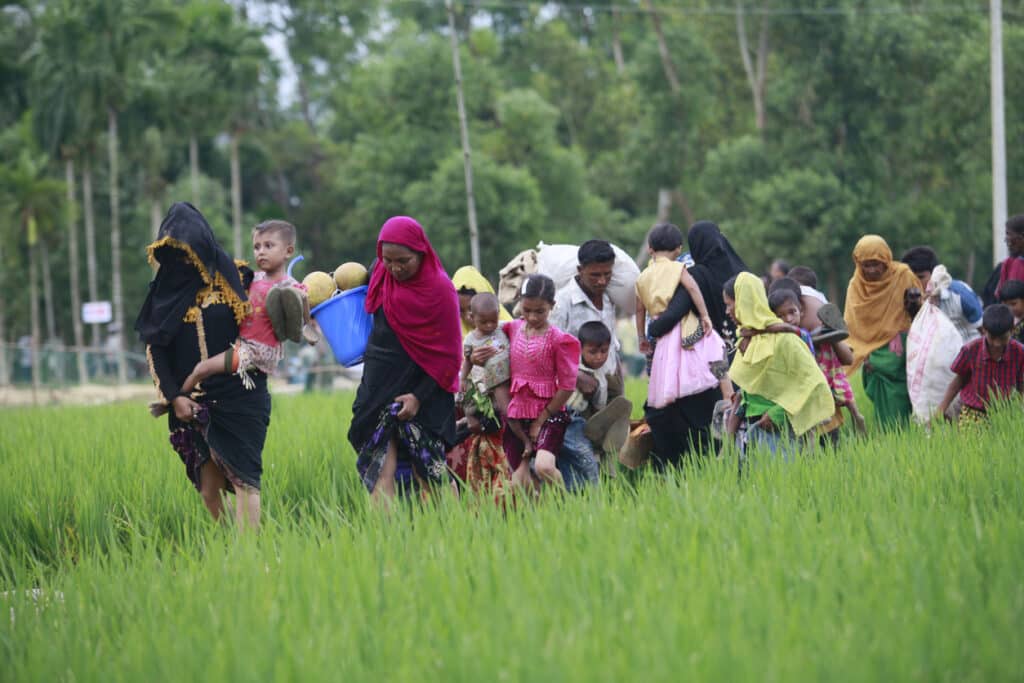
Jenan Taylor
30 December 2023
Millions of people went hungry, faced violence and were forced to flee their homes in 2023, but many were forgotten in the shadow of other global crises, humanitarian groups say.
People in the world’s poorest nations struggled to access food and find refuge mostly because of armed conflict and the effects of climate change.
Almost 300 million people faced hunger in places such as sub Saharan and southern Africa, and parts of Asia, and more than 110 million fled their homes.
Act for Peace and Tearfund Australia feared that hunger and forced displacement were becoming protracted and unshakeable issues that many in the international community were becoming desensitised to.
Read more: International community urged to keep aiding vulnerable Afghans as earthquakes continue
Act for Peace Partnerships and Programs head Geoff Robinson said forced displacement was one of the world’s deepest crises, and it was a significant issue in the Democratic Republic of Congo, Sudan, Ethiopia, Afghanistan and Myanmar.
Mr Robinson said it was often driven by armed conflict and exacerbated by climate change-related events, such as cyclones, drought and food insecurity.
The UN OCHA reported in late December that in Sudan fighting was having devastating effects on civilians and their needs were at an all-time high.
The agency said a key concern was the protection of civilians with reports of increased sexual and gender-based violence, family separation and child recruitment.
But Mr Robinson said global displacement was rarely highlighted in the news, because it was an incessant issue.
Read more: Christians face kidnapping, death in the Sahel
He said the implications of being overlooked were that women and children, in particular, were at increased risk of violence, and of not having their basic human rights provided for, including access to education, food, and shelter.
Mr Robinson said the humanitarian groups trying to help them also experienced setbacks, including decreased funding from donors because the matters remained overshadowed.
The impacts were that the humanitarian needs would often outstrip available resources, from emergency aid to the staff who could provide training or support to help people become more resilient.
He said a country he was most concerned about was Afghanistan, where women’s rights had been severely eroded in the wake of the Taliban’s return to rule in 2021.
Read more: Calls to save 120,000 Armenian Christians facing persecution
Mr Robinson said although Afghanistan suffered the first of several major earthquakes on the same day the crisis in Palestine began in October, attention on the area had trailed off.
“The situation there continues to decline and all the development gains that were had in the last 20 years just eroded on a daily basis. The abuse of rights against the country’s women and girls can’t be understated,” Mr Robinson said.
Tearfund Australia International Program Director Mary Gaitho said more than a quarter of a billion people faced acute food shortages, and the majority of them were in Afghanistan, Yemen, Myanmar, Sudan and Pakistan.
Ms Gaitho said it led to people, especially children, wasting away from malnutrition, as access to adequate food and water declined.
She said climate change-related disasters, ongoing conflict inside and outside their borders, and continued economic fallout from the pandemic were mostly what drove the crisis.
But the struggles with hunger of those countries in particular, were unlikely to capture the attention that was needed to address food security, because it had become a protracted issue, Ms Gaitho said.
Read more: Climate change to blame for widespread hunger and increased violence in Africa
She said many people in the developed world were also rarely tuning in to news of weather disasters in those areas, many of the donors adhered to funding where they had geopolitical interests, and events in Gaza and Ukraine had taken much of the donor and media energy.
Ms Gaitho said this threatened to worsen the situation for people who were already in dire need and made them vulnerable to any economic or climate change shock.
She said it created a loop in which they were always having to deal with different crises, so they were always experiencing turmoil.
The implications of being forgotten meant intensified poverty for the people, intensified injustice, more local turmoil, potentially even more people seeking refuge, and humanitarian aid staff battling exhaustion and pessimism about their ability to recoup or make further gains with their work.
Ms Gaitho said it was important that people continued to pray for those affected countries, try to understand the complexities of what was happening there, and donate where they could, in order to break the cycle of disadvantage.
See here to donate to Act for Peace, Tearfund Australia or the Emergency Action Alliance crisis response appeals.
For more faith news, follow The Melbourne Anglican on Facebook, Instagram, or subscribe to our weekly emails.






